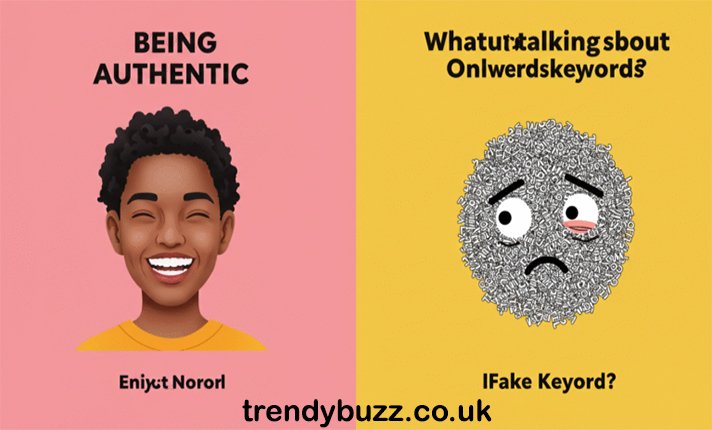Introduction
Authenticity seems like a simple idea until you try to define it precisely. At its core, authenticity means acting and speaking in ways that align with your values, feelings, and sense of identity. It is not about being blunt for its own sake. It is about coherence: when what you say, how you act, and what you believe line up. That alignment matters because it affects mental health, relationships, and how people judge the meaning of their choices.
Where the phrase meets the idea
The line “What you talkin’ ’bout, Willis?” became famous on the television show Diff’rent Strokes and lives on as a shorthand for blunt, candid reaction. The appeal of that moment is its apparent straightforwardness. In the same way, authenticity draws attention because it signals clarity and honesty. When someone reacts from a real place we notice, and we often respond with relief or amusement because pretense has been exposed.
Why authenticity matters psychologically
Psychologists measure authenticity as more than a feeling; they study it as a pattern of behavior and self-knowledge. Contemporary models describe authenticity in multiple dimensions: acting consistently with one’s values, resisting inappropriate conformity, connecting honestly with others, and maintaining continuity over time. Empirical work reports consistent associations between higher authenticity and greater subjective well-being, stronger self-esteem, and more satisfying relationships. Multiple reviews and longitudinal studies support the link between authenticity and well-being, suggesting that acting in line with core values predicts greater life satisfaction over time.
Trust and relationships
Authenticity has a clear social payoff: trust. When people are consistent and transparent about what they want and what they stand for, others can predict their behavior and rely on them. That predictability reduces the social friction that makes cooperation costly. Authenticity does not guarantee smooth relationships; instead it creates a stable foundation on which trust and intimacy can grow.
Performance and leadership
Authenticity is often misunderstood as the opposite of competence. In leadership, the most effective people combine clear values with skill and follow-through. Authentic leaders admit mistakes, take responsibility, and model vulnerability when appropriate. That combination of competence and conscience builds engagement and loyalty among teams, and it reduces cynicism. Acting consistently with values matters as much as technical skill when it comes to leading well.
Why authenticity is hard
Living authentically is often more difficult than people expect. Social norms, workplace pressures, historical trauma, and power imbalances can all encourage people to wear masks or mirror others. For some, being open about identity or needs carries real risk. Research recognizes that authenticity depends on self-knowledge and safe contexts; it is rarely useful to demand radical honesty in environments that punish difference. For example, someone in a hierarchical workplace may hide doubts to avoid being judged, while someone who has experienced rejection may limit self-disclosure as a protective strategy. Those are rational responses that complicate the straightforward advice to “be yourself.”
Practical ways to practice authentic living
Authenticity is a skill you can build. Start by naming three values that matter to you and writing them down. For one week keep a short log: note moments when you felt aligned and moments when you felt you performed to fit expectations. At the end of each day pick one small change you can try — a brief refusal, a clear preference, or a short truthful comment. Next, practice small acts of alignment: RSVP only to commitments you can keep, state short preferences in conversations, and set a weekly check-in with yourself where you ask whether recent choices matched your stated values. Over time these small practices build confidence. Practices such as mindfulness, journaling, and coaching help people develop the calm attention and clarity authenticity requires.
When bluntness backfires
A blunt line can be cathartic, but bluntness without care can wound. Authenticity paired with empathy is more effective than uncensored truth. Timing, audience, and power matter. The most reliable form of authenticity is not just honesty; it is honest and intentional communication that considers impact.
Authenticity across cultures
Culture shapes what authenticity looks like. In some traditions, direct speech signals truthfulness. In others, preserving group harmony while staying true to inner commitments is the authentic choice. Being mindful of cultural differences prevents us from imposing a single standard of authenticity and helps us recognize where genuine expression fits different norms.
Common misconceptions
People often equate authenticity with constant disclosure or with a refusal to adapt. In reality authentic living accepts tradeoffs. It recognizes that people hold many roles and that acting authentically sometimes means choosing which role to prioritize in a given context. A related myth is that authenticity means never changing. In truth people evolve; authenticity is the honest management of those changes and the willingness to explain them. It is also not a license for cruelty.
A small experiment to try this week
Try a short experiment. For three days, each evening write one moment when you acted in line with a value and one moment when you acted out of obligation. For each obligatory moment, note what stopped you from acting differently. Choose one small change for the next day, try it, and observe the result. During the three-day test, rate each entry on a scale from one to five for how true it felt and note any surprises. At the end of the week, reflect on patterns and pick one habit to continue next week; small wins compound. Small trials increase learning and reduce risk.
Conclusion: why we should care
Authenticity reduces friction in our relationships, supports mental health, and produces clearer decisions. It is not about perfection or bluntness without care. It is about aligning words, actions, and values so that you can move through life with less inner conflict and more social clarity. Start small, and authenticity will steadily grow over time. That alignment is why authenticity matters.
